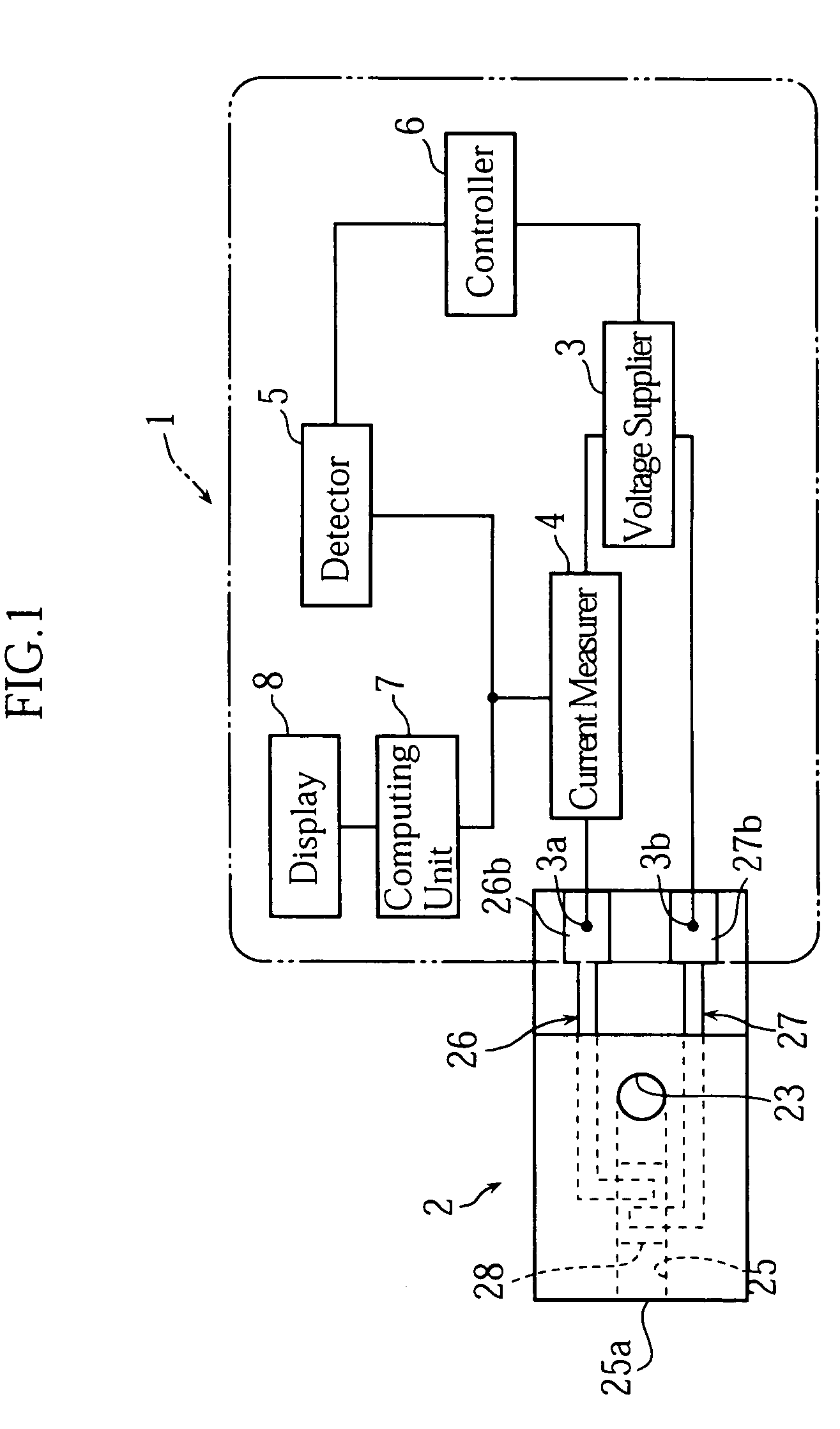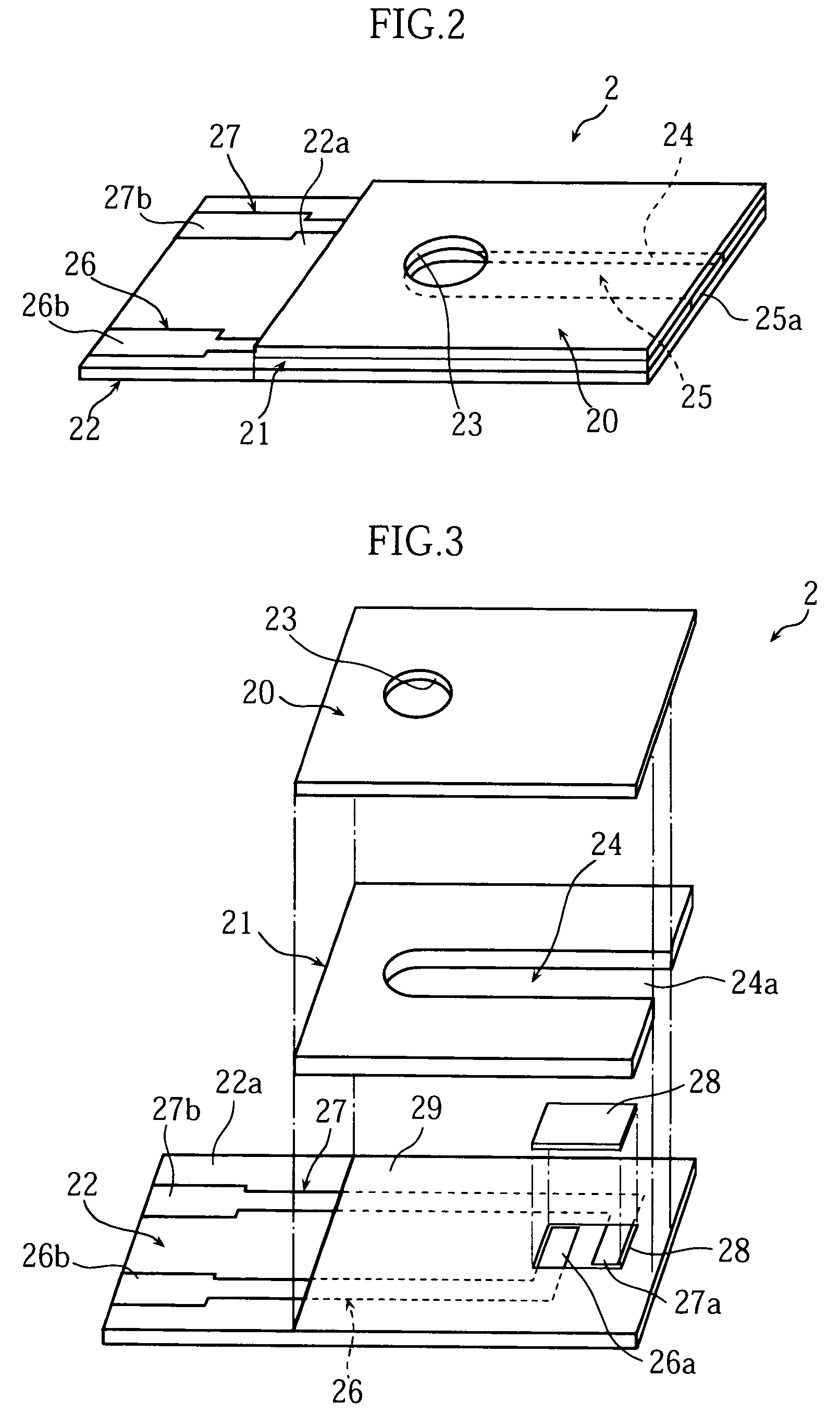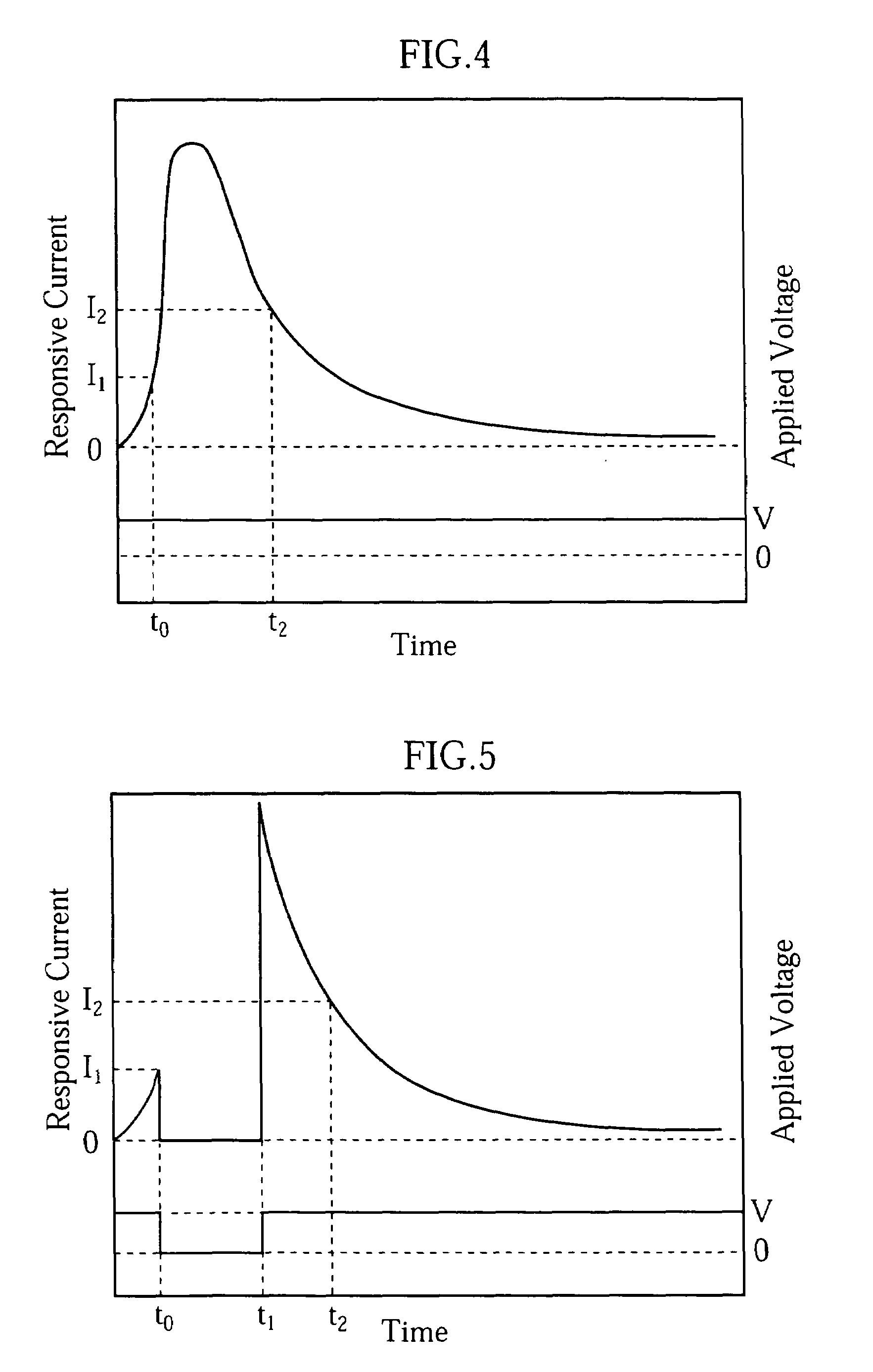Method of measuring glucose concentration and glucose sensor with the use of glucose dehydrogenase
a technology of glucose dehydrogenase and glucose concentration, which is applied in the direction of measuring devices, biochemical instruments and processes, instruments, etc., can solve the problems of deteriorating measurement accuracy in the low concentration range, long measurement time, and troublesome frequent visits to medical institutions for measuring blood glucose level, etc., and achieves wide measurement range and accurate measurement of a small amount of analyte in a short period of time.
- Summary
- Abstract
- Description
- Claims
- Application Information
AI Technical Summary
Benefits of technology
Problems solved by technology
Method used
Image
Examples
example
[0071]Hereinafter, it is demonstrated that, in the measurement of a glucose level by utilizing enzyme reaction, a glucose sensor having a reagent layer provided by the combination of a Ru complex and αGDH or βGDH exhibits a high reaction rate (short measurement time), covers a wide measurement range, has a high reproducibility, and is less likely to be influenced by the hematocrit (Ht), even when a minute amount of analyte is used.
[Preparation of Glucose Sensor]
[0072]As the glucose sensor, use was made of one including a substrate on which a first electrode, a second electrode, a reagent layer and a capillary are formed (See FIGS. 2 and 3). The first and the second electrodes were formed by applying carbon ink onto the substrate by screen printing and then drying the ink. The volume of the capillary was basically set to 0.3 μL. However, as will be described later, in checking the influence of Hct, capillaries having a volume of 0.4 μL and 0.5 μL were also utilized. The reagent layer...
PUM
| Property | Measurement | Unit |
|---|---|---|
| molecular weight | aaaaa | aaaaa |
| molecular weight | aaaaa | aaaaa |
| molecular weight | aaaaa | aaaaa |
Abstract
Description
Claims
Application Information
 Login to View More
Login to View More - R&D
- Intellectual Property
- Life Sciences
- Materials
- Tech Scout
- Unparalleled Data Quality
- Higher Quality Content
- 60% Fewer Hallucinations
Browse by: Latest US Patents, China's latest patents, Technical Efficacy Thesaurus, Application Domain, Technology Topic, Popular Technical Reports.
© 2025 PatSnap. All rights reserved.Legal|Privacy policy|Modern Slavery Act Transparency Statement|Sitemap|About US| Contact US: help@patsnap.com



